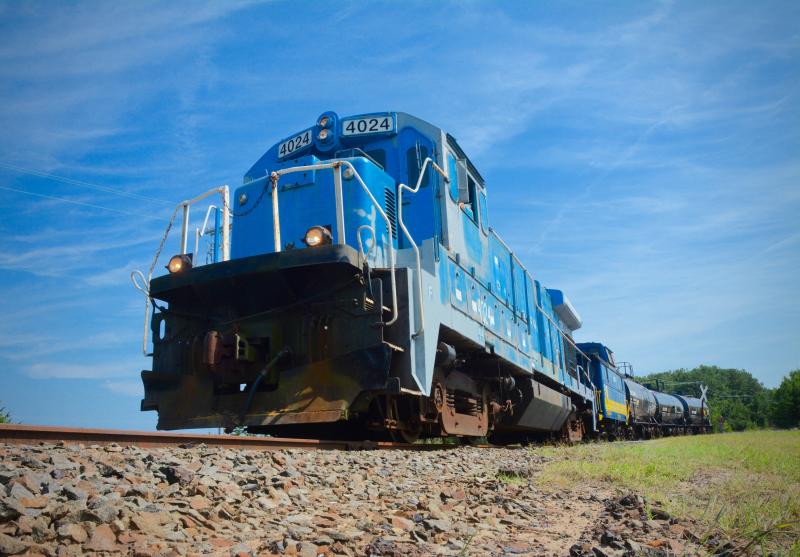Railroads, indigestion and America's crumbling infrastructure
America’s crumbling infrastructure that President Trump wants to address with a trillion-dollar initiative isn’t some distant problem. In Delaware’s Cape Region, the railroad bridge over the Lewes-Rehoboth Canal in Lewes provides evidence of the attention that’s necessary. Delaware closed the bridge months ago after an inspection showed its foundation was giving way, rendering the crossing unsafe.
The bridge dates back to the early 20th century and was used during World War II to haul munitions and other materials to the U.S. Army’s Fort Miles installation at Cape Henlopen.
In more recent decades, the bridge has carried trains over the canal to deliver raw materials used by the SPI Pharma manufacturing facility just outside the gates of Cape Henlopen State Park. SPI mines aluminum- and magnesium-related elements from seawater pumped in from an intake pipe under the fishing pier in the park. The raw materials brought in by train carloads are used in processing the seawater to create the base constituents of antacids like Maalox and other products.
In the absence of the bridge, SPI Pharma is using its bulk truck transport option. Greg Sherman, SPI Pharma facility manager, said using the truck option doesn’t affect the plant’s ability to operate. “It just increases some of our logistics,” he said. “There’s nothing firmed up about the bridge. All we know is it’s on a slow timetable, and we’ll keep using our truck option until we hear otherwise.”
If the lack of the bridge did curtail operations at SPI Pharma, that would be a real problem for the company and the local area. Sherman said SPI employs about 80 people who live nearby. Imagine that indigestion.
One company directly affected by the bridge outage is Delaware Coast Line Railroad, which contracts with SPI to haul its materials. Dan Herholdt of Delaware Coast Line said his company has lost that business. “The bridge is in the hands of DelDOT bridge section,” said Herholdt. “The state owns the bridge and the rail line. We lease the line, and maintain the tracks and signals. I hope they will be able to repair the bridge and keep it active, but I don’t know what the plans are.”
Herholdt’s firm hauls propane gas cars to local fuel dealers including Schagrin, Wilson Baker, and Bob Willey and Sons. “The revenue we lost from SPI Pharma we picked back up when we started hauling for Bob Willey and Sons,” said Herholdt. “It’s not that we’re out. We just don’t have the extra we would have had otherwise.”
Delaware Coast Line Railroad hauls all the train cars destined for businesses between Ellendale and Milton, on a line known as the Milton Industrial Line. That includes the Baker and Willey propane deliveries. That line is the last active piece of railroad left from the original Queen Anne Railroad built in the mid-1800s from Love Point on Kent Island to Lewes. There’s talk that the long-abandoned Queen Anne Railroad bridge between Diamond and Wagamons ponds in Milton may be rehabbed by DelDOT for an extension of the town’s bicycling and walking rail trail. Stay tuned for more on that.
The Georgetown to Lewes line operated by Delaware Coast Line Railroad serves the Sussex County Industrial Park, where Schagrin Gas has a depot, as well as a Mountaire facility at Gravel Hill. “We haul dried distillers grain to Mountaire,” said Herholdt. “It’s a byproduct from ethanol plants elsewhere in the country and is used as part of chicken feed.”
Herholdt’s locomotives pick up the cars they haul on their two local lines at interchanges in Ellendale and Georgetown. An outfit known as Carload Express took over the main rail line operations on Delmarva from Norfolk Southern in recent years. Herholdt said Norfolk Southern still owns the tracks and associated buildings.
Carload Express is involved with hauling propane gas to the Ellendale and Georgetown interchanges from the Delaware City refinery. They’re also involved with hauling coal to NRG’s electricity generating plant on Indian River. “Fifteen years ago, three trains a week hauled coal to Indian River,” said Herholdt. “But since NRG cut back to one generating boiler, there’s only one train a week.” That line is serviced by another provider.
Other opportunities
In the railroad business, you pick up revenue wherever opportunity arises. Herholdt said his company maintains tracks, signals and sidings for private companies like Perdue and Kraft, all the way north to Townsend. “We also do work in Salisbury and on the Maryland-Delaware line.”
He also rents out space on some of the tracks he leases to store rail cars for companies either not using them at the moment or for others waiting to unload the product. Recently, he said, a number of gas companies bought surplus propane from the Delaware City refinery because the company had to go into maintenance mode. “The discounts made the purchases worth it, but this mild winter means gas isn’t being used as quickly as was anticipated, so it is being stored in the cars on our tracks until the companies have space in their own tanks for it,” said Herholdt.
Herholdt said the cold March we’re having may get things moving, but in the meantime the storage component is one of many Delaware Coast Line Railroad uses to make ends meet.
Coal trains, railroad bridges, upset stomachs and the rolling storage tanks known as propane gas cars all serve as reminders of how connected our relatively remote corner of the country is to the larger national economy.






















































